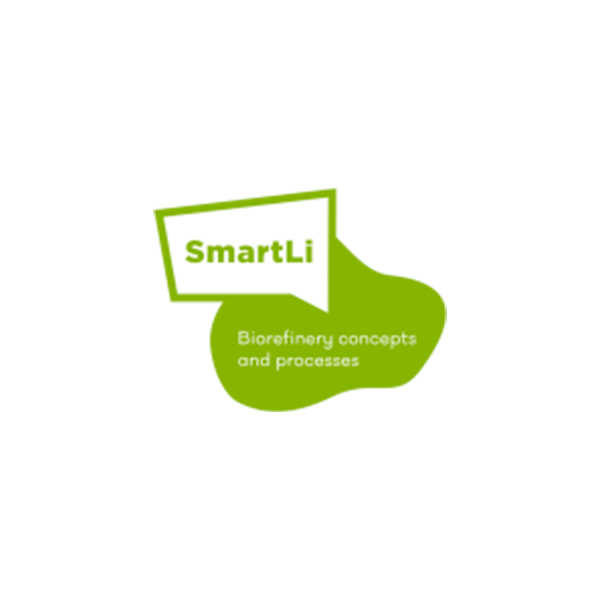SMARTLI – Smart technologies for the conversion of industrial lignins
SmartLi is a three-year program which aims to develop valorisation routes for lignin. If the project is successful, the lignin fractions may replace oil-based products for example in plywood resins and composites.
The Bio-Based Industries Joint Undertaking (BBI JU) is a €3.7bn public private partnership between the EU and the Bio-based Industries Consortium. It focuses on turning biological residues and wastes into greener everyday products through innovative technologies and biorefineries, which are at the heart of the bioeconomy. The investment is a testament to the private and public sectors’ commitment to building a strong bio-based industrial sector in Europe, leading to new jobs and growth for a fossil-free future.
This project has received funding from the Bio-Based Industries Joint Undertaking under the European Union’s Horizon 2020 research and innovation programme under grant agreement No 668467.
Work Packages
Work package 1
Lignin pretreatmens for improved and constant quality creates separation and purification technologies for wood lignin sources that preserve the polymeric character of lignin, but lower significantly its sulphur content and odour. This enables production of lignin with constant quality and provide it as starting material to downstream processing.
Work package 2
Generation of lignin-based building blocks develops lignin depolymerisation techniques based on base-catalysed degradation. Also separation concepts and technologies as post treatments for the depolymerisation will be looked. Production of lignin fractions will be upscaled for application testing.
Work Package 3
Lignin based polyols and biobased materials looks into ways to convert lignin a) into thermoplastic and moldable biopolymer for composite applications, b) to use pretreated lignin fractions as reinforcing llers, plasticizers or flame retardants in composites, c) to use lignin oligomers by chemical modification for polyurethane and epoxy resin applications, e) to replace phenol in phenol-formaldehyde (PF) resins.
Work Package 4
Life cycle assessment and techno-economic performance evaluates of the sustainability of the entire value chains – the novel process technologies and lignin-based products. The approach takes into account environmental, economic and social aspects, absorbing the most promising technologies and evaluating their potential from wide sustainability perspectives.
Partners
TECNARO GmbH (Germany), AEP Polymers Srl (Italy), Fraunhofer Gesellschaft zur Forderung der Angewandten Forschung Ev (Germany), Vito Vlaamse Instelling Voor Technologisch Onderzoek N.V. (Belgium), Metsä Fibre, VTT Technical Research Centre of Finland Ltd, Sappi Netherlands Services B.V. (Netherlands), Foresa Industrias Quimicas del Noroeste Sa (Spain), Wood K Plus Kompetenzzentrum Holz GmbH (Austria), Prefere Resins Finland Oy, Kotkamills Oy, Andritz Oy


